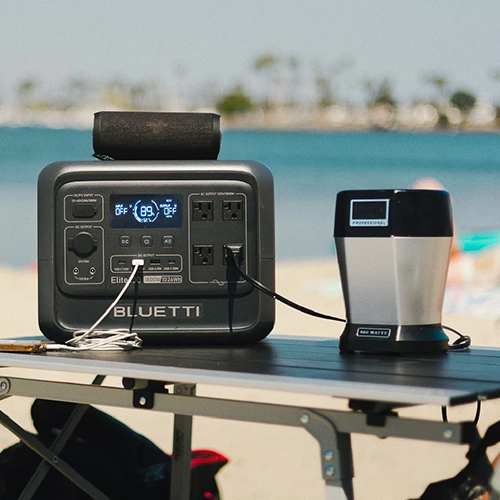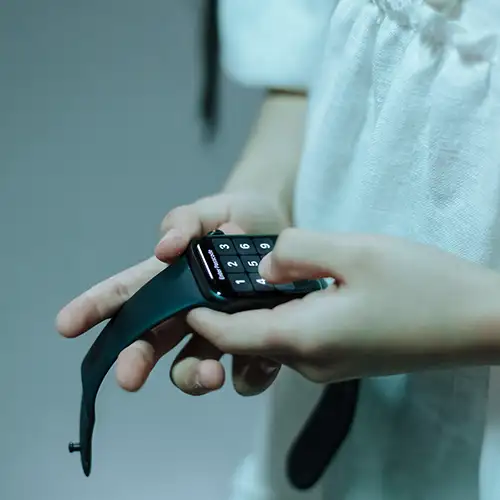
The Impact of Blue Light on Sleep: Techniques to Reduce Exposure and Enhance Restful Sleep
In today's digital age, our exposure to screens, particularly those emitting blue light, has increased significantly. While this has led to advancements in technology and improved connectivity, it has also raised concerns about its potential impact on our sleep patterns. Additionally, constant exposure to blue light over time could damage retinal cells and cause vision problems such as age-related macular degeneration. It can also contribute to cataracts, eye cancer, and growths on the clear covering over the white part of the eye. Understanding the effects of blue light and implementing effective strategies to reduce its impact can significantly contribute to a healthier and more restful sleep cycle.
The Role of Blue Light in Sleep Disruption
Blue light, a high-energy visible light emitted by electronic devices such as smartphones, tablets, and computers, has been found to suppress the production of melatonin, a hormone that regulates sleep-wake cycles. Prolonged exposure to blue light, especially in the evening and nighttime hours, can disrupt the body's natural circadian rhythm, leading to difficulties falling asleep and achieving a restful, rejuvenating slumber.
Techniques to Minimize Blue Light Exposure and Improve Sleep Quality
1. Use Blue Light Filters
Employ blue light filters or screen protectors on electronic devices to reduce the amount of blue light emitted, especially during the evening hours.
2. Adjust Display Settings
Opt for warmer colour temperatures and lower brightness levels on screens to minimize blue light exposure without compromising visibility.
3. Limit Screen Time Before Bed
Establish a digital curfew by avoiding screen use at least an hour before bedtime, allowing your body to naturally prepare for sleep without the interference of blue light.
4. Prioritize Night Mode
Enable the night mode feature on devices, which automatically reduces blue light emission and adjusts the screen to warmer tones, creating a more conducive environment for sleep.
5. Opt for Alternative Activities
Replace screen time with relaxing activities such as reading a physical book, practising meditation, or engaging in calming pre-sleep rituals to promote a smoother transition into a restful state.
The Importance of Creating a Sleep-Friendly Environment:
Beyond minimizing blue light exposure, creating a sleep-friendly environment can further enhance sleep quality. Implementing strategies such as maintaining a consistent sleep schedule, ensuring a comfortable sleeping environment, and practising relaxation techniques can work synergistically with blue light reduction methods to promote overall sleep health.
Frequently Asked Questions
How does blue light affect sleep patterns?
Blue light suppresses the production of melatonin, a hormone vital for regulating our sleep-wake cycles. Excessive exposure to blue light, especially in the evening, can disrupt the body's natural circadian rhythm, leading to difficulties falling asleep.
Are there any effective ways to reduce blue light exposure from screens?
Yes, employing blue light filters or screen protectors, adjusting display settings, and limiting screen time before bed can significantly reduce blue light exposure. Additionally, enabling night mode features on devices can help minimize blue light emission during nighttime use.
What are some alternative activities that can promote better sleep quality?
Engaging in calming activities such as reading a physical book, practising meditation, or establishing relaxing pre-sleep rituals can help prepare the mind and body for a more restful sleep, especially when avoiding screen time before bed.
How important is a sleep-friendly environment for overall sleep health?
Creating a conducive sleep environment, maintaining a consistent sleep schedule, and implementing relaxation techniques are crucial for promoting optimal sleep quality. These factors, when combined with reduced blue light exposure, contribute to a holistic approach to sleep health.
Conclusion:
By understanding the impact of blue light on sleep and implementing effective techniques to reduce its exposure, individuals can take significant strides towards improving their sleep quality and overall well-being. Creating a balance between technological engagement and sleep hygiene is crucial in fostering a healthy relationship with digital devices while prioritizing restful and rejuvenating sleep.
Feel free to reach out for any further information or if you require additional details on this topic!
Latest Blogs

Exploring Memory Card Types: A Comprehensive Guide

Blackview Tablet Reviews: A Comprehensive Look at Features and Performance

The Best Portable Power Stations & Solar Generators in the UK (2025 Guide)

10 Best Smartwatches for Kids


